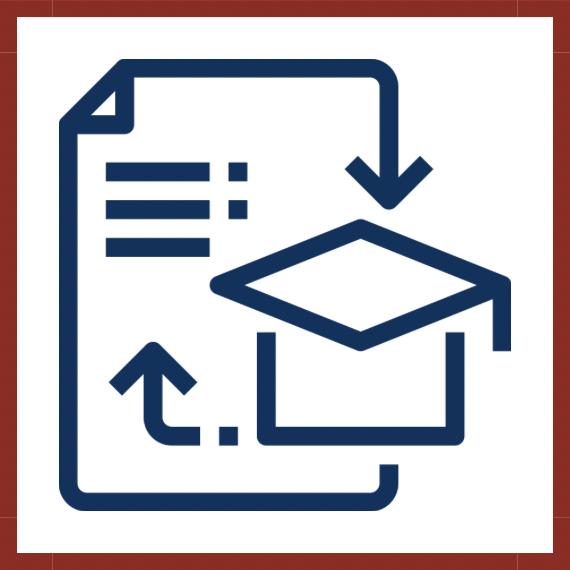Level and Duration of the Program: Master, 4 Semesters.
Management Information Systems Master's Program Mission
The mission of the Department of Management Information Systems to equip graduates with the necessary skills to excel in the business world and to enhance their capacity to employ information technologies in a strategic manner. By imparting students with a comprehensive understanding of information technologies, the program aims to prepare them to attain a competitive edge in the current dynamic technological landscape.
Management Information Systems Master's Program Vision
The program's vision is to ensure that graduates can make a favorable impression in the business world and improve their ability to use information technologies strategically. Additionally, the program aims to foster a culture of lifelong learning among students, empowering them to adapt to the ever-changing field of informatics.
Program Purpose: The primary objective of the department of Management Information Systems is to equip students with the necessary skills to utilize information technologies efficiently. This objective encompasses several key components, including:
1. Technological Knowledge and Skills Development: To equip students with a solid foundation in fundamental technology domains, including information systems, software development, and database management.
2. Business Process and Management Knowledge: To acquire the ability to incorporate information systems into businesses and to develop the proficiency to oversee business operations efficiently.
3. Analytical Thinking and Problem-Solving Skills: To offer the capability of addressing intricate corporate challenges while simultaneously employing technological resources in a strategic manner.
4. Communication and Collaboration Skills: To cultivate proficient communication, teamwork, and leadership abilities in the professional realm.
5. Compliance with Ethical Standards: To understand and apply ethical standards in business and informatics.
6. Sustainable Usage of Technology: To promote awareness with the aim of facilitating the incorporation of sustainability principles and practices into the use of technology.
Program Outcomes: Departmetn of the Management Information Systems has accomplished several key objectives across the following domains:
1. Technical Knowledge and Capabilities: Developing extensive knowledge and proficiency in fundamental information technologies, while simultaneously acquiring practical skills in software development, network administration, and database design.
2. Business Process and Management Knowledge: Developing the ability to understand business processes and integrate information systems into these processes.
3. Analytical Thinking and Problem Solving: Gaining the ability to analyze complex business problems, produce appropriate solutions and make decisions.
4. Communication and Leadership Skills: Developing the ability to communicate effectively, collaborate within a team and leadership skills.
5. Project Management: Acquiring the ability to effectively plan, execute, and oversee informatics initiatives.
6. Ethical and Sustainability Awareness: Understanding and applying ethical standards in business and informatics, sensitivity to the sustainable usage of technology.
7. Continuous Learning Culture: Adapting to the rapidly changing technology environment and adopting a culture of lifelong learning.
Program Employment Areas: Department of the Management Information Systems is well-equipped to pursue a range of career opportunities across multiple industries and job roles. The following are some of the employment sectors in which program alumni may find employment:
1. Information Technology Management: Providing leadership in the planning, implementation and management processes of information systems.
2. Data Analytics and Big Data Management: Providing strategic information to businesses by analyzing big data sets.
3. Information Security and Risk Management: Ensuring the security and protection of the information infrastructure of businesses and developing effective cybersecurity strategies.
4. Software Development and Programming: Taking part in the development of new software or improvement of existing software.
5. Project Management: Participating in the planning, implementation and follow-up processes of informatic projects.
6. Business Analytics: Using data analytics to optimize business processes and make strategic decisions.
7. Informatics Consultancy: Providing consultancy to businesses on informatic strategies and solutions.
8. E-Commerce and Digital Marketing: Developing and managing online commerce and digital marketing strategies.
9. Health Information Management: Managing information systems in the healthcare industry and ensuring the security of health data.
10. Energy Sector Informatics Applications: Optimizing processes using information systems in energy companies.
Course Process: Department of the Management Information Systems employs an information technologies-based digital Learning Management System (LMS) to deliver its courses. This advanced online platform enables students to attend classes remotely and successfully complete the program.
1. Theoretical Courses: Cover fundamental topics in information technology, business processes, management principles, and technical information. These courses are designed to impart foundational knowledge to students.
2. Practical Applications: The application courses are conducted within virtual laboratory environments that are based on computers. These courses enable students to develop informatic projects or resolve problems by utilizing their theoretical knowledge.
3. Project Studies: Independent learning opportunities that allow students to undertake projects in specific subjects and develop skills to address and resolve practical issues in actual settings.
4. Virtual in-Class Discussions and Presentations: Virtual classroom discussions and presentations that allow students to exchange ideas and express their own views on the topic.
5. Industrial Projects: Undertakings pertaining to industry that provide students with practical experience and exposure to the corporate world can be implemented. These initiatives facilitate comprehension of the practical application of theoretical knowledge.
6. Online Course Materials: The provision of online course materials and recordings on digital platforms affords students with the flexibility to learn at their own convenience, taking into consideration their physical availability, technical capabilities, and preferred time.


Bölüm Müfredati / Department Curriculum
